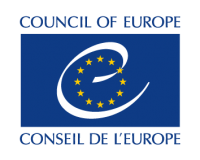 The notion of energy efficiency as an energy resource is now widely accepted. Indeed, since the widespread Demand Side Management programs of the 1970’s, these “Negawatts” (a term coined by Amory Lovins) have been quantified in financial terms and compared with supply-side infrastructure investments and shown in most cases to deliver the lowest cost per unit of energy (LCOE), as well a significant environmental benefits such as lower carbon emissions.
The notion of energy efficiency as an energy resource is now widely accepted. Indeed, since the widespread Demand Side Management programs of the 1970’s, these “Negawatts” (a term coined by Amory Lovins) have been quantified in financial terms and compared with supply-side infrastructure investments and shown in most cases to deliver the lowest cost per unit of energy (LCOE), as well a significant environmental benefits such as lower carbon emissions.
Thus it is with some alarm that I have read this morning that elements within the European Council are resisting formally prioritizing efficiency measures in the EU Energy Strategy. For those unfamiliar with how the EU works, here is a simplifcation:
- The Council represents the nation states in the EU and it sets the overall policies and goals
- The Commission is the EU’s civil service and takes the Councils mandate to draft legislation
- The legislation is approved by the Parliament and the Council and becomes EU law
- Nation states then implement the laws and if they do not they can be challenged in the European Court of Justice
According to a report by EUObserver, some member states – through the Council – are resisting the notion that energy efficiency should be considered a priority. Their argument is that of “subsidiarity”, which is the principle that the EU should not bring in rules and regulations which should more properly be dealt with at a National level. On the one hand we have the Commission and Parliament both proposing that energy efficiency is a core priority – an “energy efficiency first” approach – and on the other hand we have some elements in the Council who want to let member states determine their own priorities (with the suggestion that this is intended to favor new generation from gas plants).
Subsidiarity is a valid concept. Given, however, that the CO2 and other pollutants produced from energy generation do not respect borders, it is questionable whether this principle should apply in this case. Friends of the Earth have suggested that the objection to prioritizing efficiency is coming from Bulgaria – which currently holds the rotating Chair of the Council and so has great influence in drawing up the response of the Council. This is very troubling as the environment minister of Bulgaria is reported to be a denier of climate-change.
It is essential that we do not give a veto to countries and politicians whose agenda is harmful to the interests of the people of Europe or, indeed, the people in their own nations. Let us hope that the other elements of the triumvirate (the Parliament and Commission) as well as those nations in the Council who recognize climate change to be the existential threat that it is – and understand that efficiency is the obvious first response – can prevail in this argument.
As with all such decisions the more visible and open they are the more we citizens and stakeholders can bring to bear our views. Please share this post to help spread the message.



0 Comments